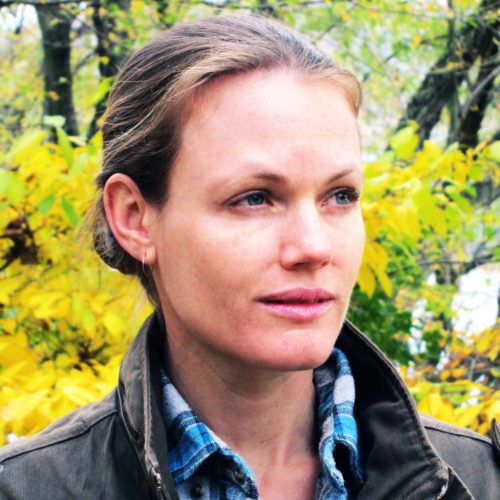Revive & Restore Welcomes Michele Weber, Director of Conservation Innovation
SAUSALITO, CALIFORNIA. JANUARY 10, 2020

Executive director Ryan Phelan announces today that Michel Weber has joined Revive & Restore in a senior role as Director of Conservation Innovation. In this senior position, Michele willl help broaden our connections with the conservation community and deepen our scientific strategy in our mission to enhance biodiversity through the genetic rescue of endangered and extinct species.
Michele brings with her significant scientific expertise, program development skills, and an enthusiasm for nature and conservation. Michele is an evolutionary biologist with over ten years’ experience in scientific research and philanthropy.
Using a creative strategy to address scientific challenges, Michele has conducted research on threatened coral reefs around the world—a focus for Revive & Restore—working on questions related to symbiosis and biodiversity. More recently, Michele helped develop the scientific priorities and program strategy for the Symbiosis in Aquatic Systems Initiative at the Gordon and Betty Moore Foundation.
At Revive & Restore, Michele will be sourcing and developing diverse collaboration opportunities and innovative scientific solutions. She will work with conservationists, scientists, government agencies and funders to build projects and strategies that address some of the world’s most pressing conservation challenges.
Michele holds a Ph.D. in Integrative Biology and a B.S. in Molecular and Cell Biology, both from UC Berkeley.
About Revive & Restore
The mission of Revive & Restore is to enhance biodiversity through new techniques of genetic rescue for endangered and extinct species.
It is widely documented that the nature of humanity’s impact on Earth has reduced many wildlife populations to a precarious state and caused some complete extinctions. But many of those losses may be reversed with the promising emergence of a suite of new genetic tools. Exciting collaborative projects in genomic conservation are rapidly emerging as a result.
We are building a new conservation toolkit for the 21st century by applying new genetic technologies to biodiversity challenges. Our projects are demonstrating the measurable impact new biotechnology can have on enhancing genetic diversity, helping to build disease resistance, developing synthetic alternatives and facilitating adaptation to a changing climate.
We are the leading conservation organization promoting the incorporation of genetic tools into standard conservation practice, bringing together the academic or commercial labs advancing the science and the conservation practitioners working in the field. Revive & Restore has three distinct roles as a convener, as a science coordinator, and, increasingly, as a funder – advancing the necessary science to build the new conservation toolkit.
Convening – Revive & Restore has connected a global network of 190 scientists and conservationists to help develop the emerging field of biotechnology-based genetic rescue. Our meetings have cemented key relationships between scientists and conservationists, have steered agency funding priorities and created working groups and collaborations that are already producing tangible conservation outcomes.
Advancing R&D – Revive & Restore selects projects that display the potential of new biotech to provide tangible new solutions to wildlife conservation. As a small and nimble organization, we can be more experimental and strategically selective of the most impactful projects.
Catalyst Science Fund – Revive & Restore’s Catalyst Science Fund launched in 2018 in order to catalyze the creation of impactful innovations in conservation. This new fund supports early-stage research in transformative bio-science and proof-of-concept projects that can be applied towards high-value, high-impact conservation challenges.
For more information please visit: https://reviverestore.org/what-we-do/



